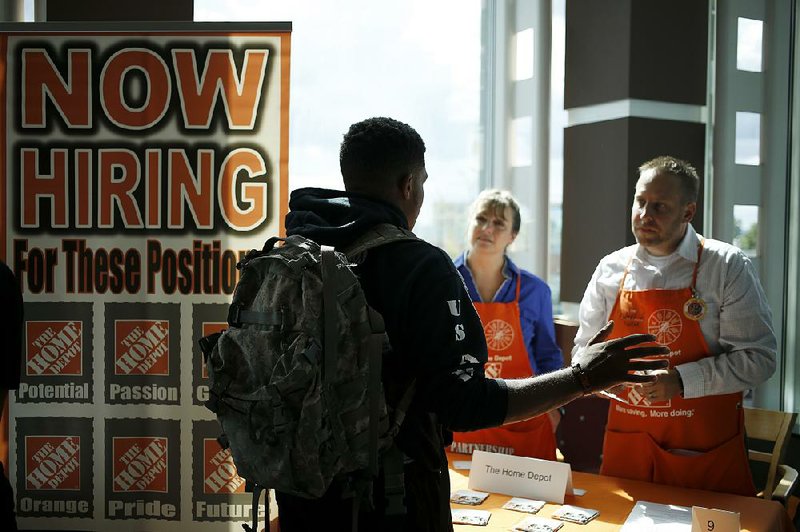WASHINGTON-- The U.S. unemployment rate remained 4.9 percent for a third-straight month in August and employers slowed their hiring to a modest increase of 151,000, the Labor Department said Friday in its monthly jobs report.
August's job gain was far below July's 275,000 jobs, which was the most in eight months, and June's 271,000. Even so, over time, the current pace of hiring is enough to lower the unemployment rate.
"Overall, it still looks like the job market is doing well," said Michael Feroli, chief U.S. economist at JPMorgan Securities LLC in New York, who projected a 150,000 gain in payrolls.
The figures might have been held back by temporary factors, such as layoffs by automakers while plants are being retooled for new models. The government tries to adjust for such seasonal changes but often struggles to do so accurately.
Over the past five years, August job growth has been revised up by an average of 70,000 in the following months. As a result, analysts said, Federal Reserve policymakers may want to await further economic data before acting to raise interest rates to make borrowing more expensive. If the Fed doesn't raise rates after it meets Sept. 20-21, most analysts expect it to do so in December.
They "will want to wait another couple of months, to ensure the data does rebound in September and that August is revised higher," Paul Ashworth, chief U.S. economist at Capital Economics, said in a research note.
The slowdown in hiring last month appeared to please stock investors, who likely see a diminished prospect of a Fed rate increase this month. Higher borrowing rates tend to weigh down stock prices. The Dow Jones industrial average was up 85 points in mid-day trading.
Hiring had been robust earlier this summer, with job growth averaging 232,000 for the past three months. Those gains appeared to make consumers more confident and willing to spend, potentially accelerating the economy's growth in the second half of this year after a sluggish start.
In August, though, hiring weakened across most major industries, and employers cut workers in manufacturing, construction and mining. Job growth slowed sharply in professional and business services, a category that includes higher-paying jobs such as engineers, accountants and architects as well as temporary jobs, which usually pay below-average wages. Temporary help firms shed 3,100 positions.
If a relatively tepid pace of job growth keeps the Fed on the sidelines for longer, the continuation of ultra-low rates could sustain the economy's expansion, some analysts suggested.
"This is a healthy thing if the gains slow down a little bit, because that reduces the risk that the Fed will quickly raise rates and choke off the expansion," said Josh Wright, chief economist at iCIMS, a recruitment software company.
Still, modest hiring means it could take longer to fully heal the scars of the recession. The proportion of Americans who are either working or looking for work has been flat for about two years near a 40-year low.
A broader gauge of unemployment, which includes part-time workers who would prefer full-time work as well as those who have given up their job hunts in the past year, remained at 9.7 percent. That is down from a peak of 17.4 percent in 2009, just after the recession ended.
Average hourly pay barely rose in August and has increased just 2.4 percent over the past 12 months. The average workweek declined slightly to 34.3 hours.
Wages are "not encouraging," said Millan Mulraine, deputy head of U.S. research and strategy for TD Securities USA LLC in New York. "But I would chalk this one up to calendar effects, and I would expect it to bounce back more meaningfully in the coming months."
Fed officials have noted the economy's improvement and the decline in the unemployment rate to levels considered all but fully healthy. Fed Chairman Janet Yellen said in a speech last month that "the case for an increase ... has strengthened in recent months."
Friday's report offers the last major piece of economic news before the central bank's next gathering.
"This morning's report is good but probably not good enough" to persuade the Fed to raise interest rates in September, said Carl Tannenbaum, chief economist at Northern Trust. "It confirms that the economy is performing well, but does not provide the threat of overheating that might have caused an interest-rate increase sooner rather than later."
Information for this article was contributed by Christopher S. Rugaber of The Associated Press, Patricia Cohen of The New York Times and Michelle Jamrisko of Bloomberg News.
Business on 09/03/2016

